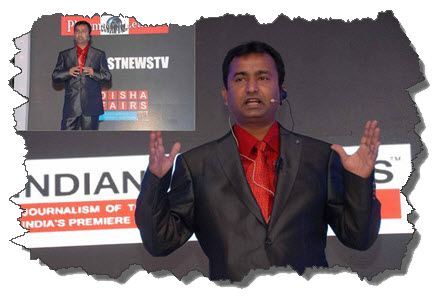

Manmohan Singh bemoans its absence. In the halcyon days of his first term, Singh, attempting to change the strategic outlook of this giant nation, was often heard complaining, "We must develop a strategic culture in this country."
He joins a large number of Indian intellectuals who decry our apparent lack of ability to plot out India's "strategic thought" or even plan a "grand strategy".To a casual observer, India's actions — or lack thereof — often appear to be a result of who the government spoke to last, or based on ad hoc considerations that undermine India's interests. What makes this outlook interesting is that foreign analysts writing about India, seem equally clear that India does not have a vibrant strategic culture.
Many of us would agree with George Tanham who wrote in his seminal RAND study on Indian strategic thought: "[India] is an extraordinarily complex and diverse society, and Indian elites show little evidence of having thought coherently and systematically about national strategy."
Why do we seem to be an inchoate mass of chattering classes, government, national security establishment and politicians, all working at cross purposes, with the result that nobody quite knows why we do what we do or whether Indian interests are at all being advanced in the global marketplace?
India, many argue, does not have a strategic culture because it has never faced an existential threat. The burden of being around for millennia has given a sort of timelessness to its strategic outlook.
On a more mundane level, though, part of the problem is the lack of an articulated grand strategy — that makes it difficult for either practitioners or analysts to figure out exactly why we do what we do. For instance, why do we hanker after a permanent seat in the UN Security Council, even without veto power?
The fact is, it is part of an otherwise unarticulated Indian trait that we must be acknowledged as a great nation, even if we missed the boat in the first place. Second, the wild accusations of "sellout" during the negotiations before the India-US nuclear deal missed the point about why we were entering into the deal in the first place. This resulted in most of the strategic debates being wide off the mark. When "strategy" does find voice, Indian "interests" are often expressed as third person "values", again unnecessary in the modern age.
Ironically, this is why think tanks or strategic analyses remain hopelessly emasculated even in this information age — their discourse depends mainly on published stuff in the media, because the establishment freezes them out of the processes behind real decision-making. This means think tanks are also personality-driven, depending on their personal contacts within the "system".
Second, a severe lack of capacity constrains India's national security apparatus — the number of bureaucrats in the foreign office has been a subject of discussion for some time. What is less talked about is the system itself, which doesn't really lend itself to strategic thinking. Since the national security/ foreign policy system functions through silos, the division "handling" say, Iran-Pakistan-Afghanistan, is also responsible for the grand strategy therein. This sucks the oxygen out of any policy planning or strategy exercise within the foreign office. Back to the Epics
The truth, as always, is complex. What is strategic culture, and do we have it? Kanti Bajpai writes: "Strategic culture consists of two parts. The first is the central strategic paradigm — the basic assumptions about orderliness in the world. Included here are assumptions about the role of war in human affairs, about the nature of the adversary, and about the efficacy of the use of force. The second part is grand strategy, or the secondary assumptions about operational policy that follow." Bajpai says there are three streams of Indian strategic thought — Nehruvian, neo-liberal and hyperrealist, saying that core values remain common to all, but strategies differ.
Is there a strategic culture in India? Actually, yes. There are core strategic values that India has embraced and lived by since Independence despite changes in strategic, foreign and security policies. It is inspired by not only the Arthashastra, but the Ramayana and the Mahabharata also, leavened by the complexities and contradictions inherent in Indian thought that have evolved over centuries of being a culture that encompassed and assimilated "foreign" influences.
Tanham says, "Four principal factors help to explain Indian actions and views about power and security: India's geography; the 'discovery' of Indian history by Indian elites over the past 150 years; Indian cultural and social structures and belief systems; and the British rule (raj)."
Shivshankar Menon, in a tribute to strategic guru K Subrahmanyam, describes the bedrock of Indian strategic thought as defined by "Subbu" — the need for "strategic autonomy". Often mistaken as a synonym for non-alignment, this is actually much closer to flexible realism. Menon says, "India is alone, along with the USA in an earlier age, in seeking to industrialise and accumulate power as a democracy."
Therefore, Indian strategic culture is a function of our assimilative history. As Menon says, "Strategy is not just about outdoing an adversary who is trying to do the same to you. It is also about finding cooperative solutions and creating outcomes in non-zero-sum situations, even when others are motivated by self-interest and not benevolence."